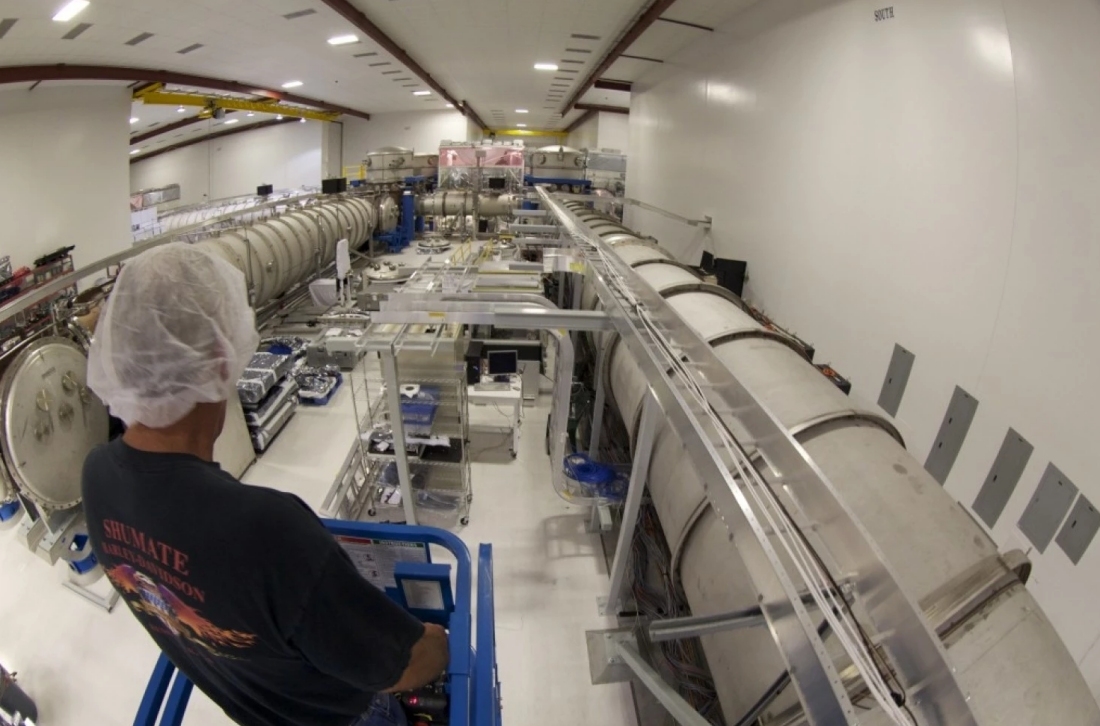Scientists with the LIGO Laboratory announced earlier today that they've discovered gravitational waves. Some are calling it the most important breakthrough in modern science, something that Einstein predicted more than 100 years ago as part of his theory of relativity.
David Reitze, executive director of LIGO, the Laser Interferometer Gravitational-Wave Observatory, said the waves they detected were a result of two black holes merging at half the speed of light. The event, which involved one black hole roughly the mass of 29 suns and another equivalent to 36 suns, took place roughly 1.3 billion years ago (it's taken them that long to reach Earth).

The waves, which Reitze said stretched and compressed our planet like Jell-O, were observed on September 14, 2015. They're so small, however, that they've been impossible to detect until just recently. LIGO was developed for this exact purpose, to detect gravitational waves.
Scientists spent the past six months convincing themselves that their findings were indeed accurate.
Columbia University physicist Szabolcs Marka, leader of the LIGO member Columbia Experimental Gravity Group, has been working on the project for more than a decade. Marka notes that although Einstein believed in the existence of gravitational waves, he thought they were so small that nobody would ever be able to measure them.